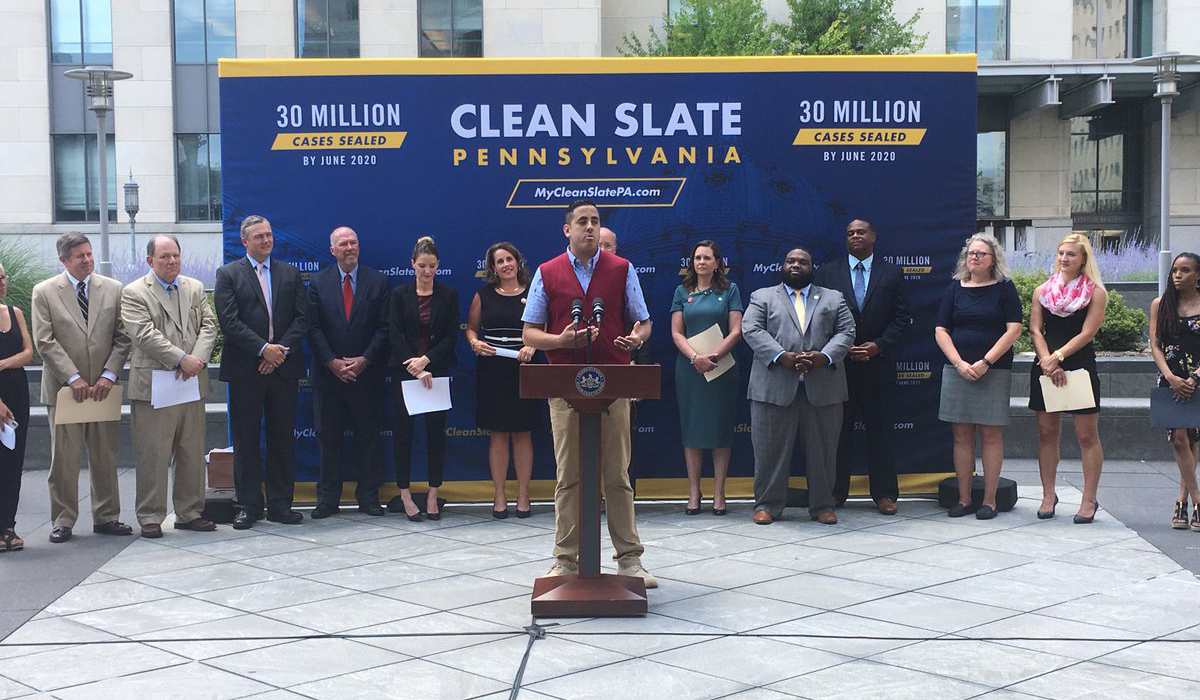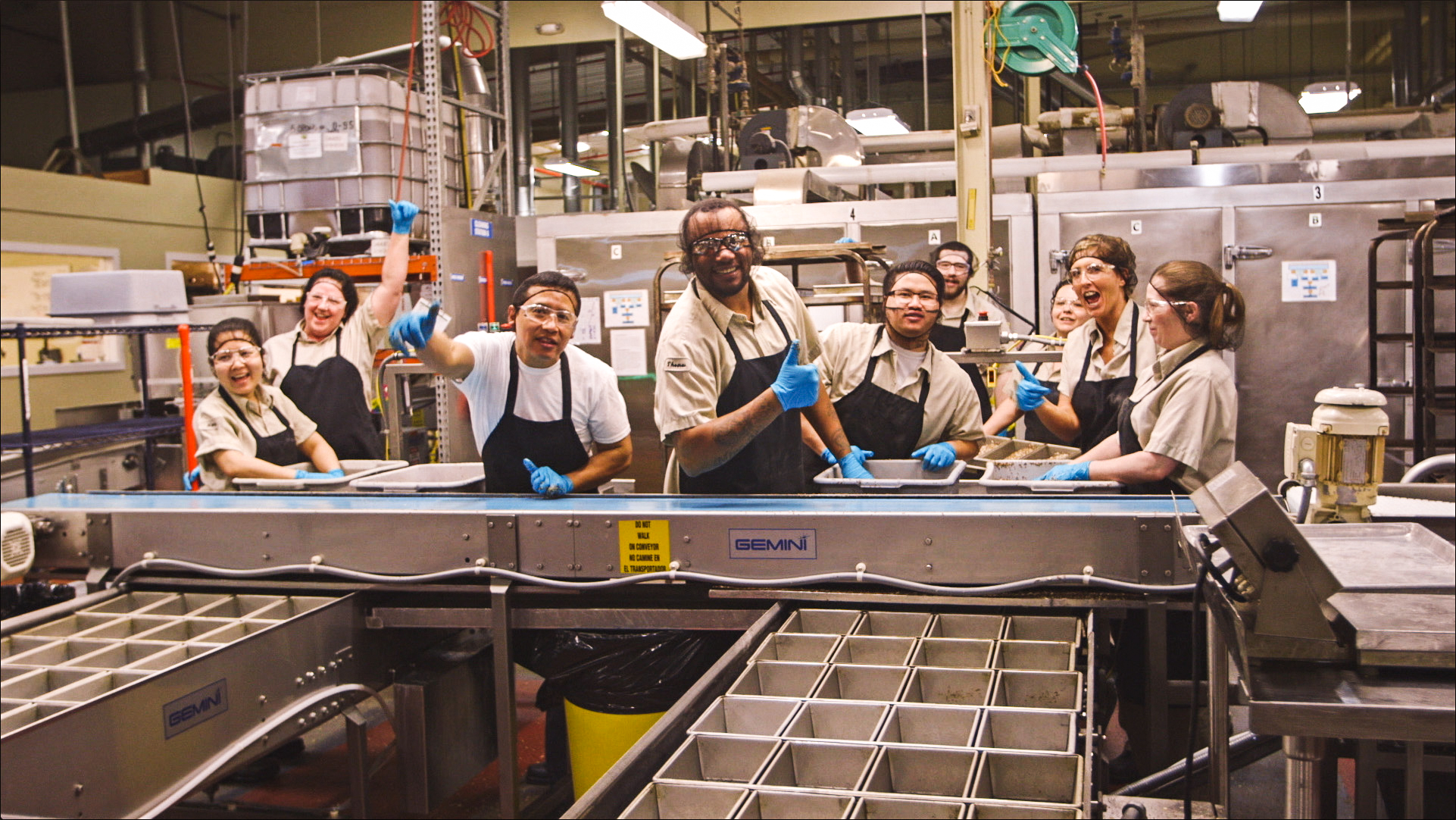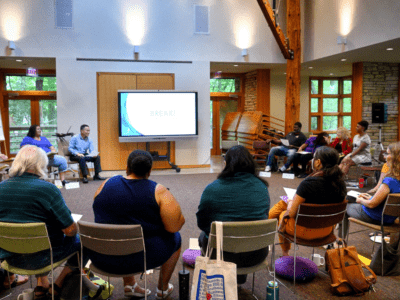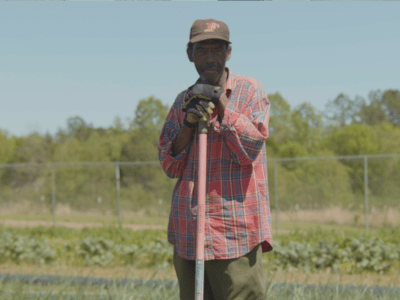“When we leave prison, we have to start over. Completely. That alone is hard enough,” says Keith, who was incarcerated more than a decade ago. “But imagine you’ve served your time, and you never stop being penalized for serving your time. That’s what it means to carry a record.”
Today, Keith lives in Harrisburg, Pennsylvania, with his wife and two young children. He holds a steady job. Yet in the past, a routine criminal background check would have posed a threat to his family’s stability and well-being.
Landlords, employers and even colleges and universities routinely use background checks to screen applications. So, for the 77 million Americans with a record – and their families – incarceration is an obstacle to opportunity long after sentences have been served. “The only way that I was able to find any work was by word of mouth,” he says, “because people who knew me or who knew my mother or my family might be willing to take a small chance on me.”

Keisha*, who lives in Philadelphia, faced similar struggles after she was arrested for a minor crime when she was six months pregnant. Although she was not convicted, she faced similar hurdles when background checks were run. “I would apply for jobs that I knew I was more than qualified for,” Keisha says. “I wouldn’t even be called for interviews. How could I get ahead with this situation? How could I help myself and my family?”
Determined to support her child, Keisha started her own business and worked in community development for years. Only now –after she made the move to have her record sealed –are the jobs she is qualified for opening up.
“Decades of over criminalization have penalized people of color especially,” says Sharon Dietrich, litigation director of Community Legal Services of Pennsylvania (CLS), a W.K. Kellogg Foundation (WKKF) grantee. “Sealing a criminal case reopens doors to employment, housing and education. It’s a life-changing remedy.”
“Sealing a criminal case reopens doors to employment, housing and education. It’s a life-changing remedy.”
Sharon Dietrich, litigation director of Community Legal Services of Pennsylvania (CLS) Tweet
Automated record-clearing closes second chance gap
Experts estimate that millions of people like Keith and Keisha are eligible to have their records cleared through expungement or sealing. Yet the vast majority never do because they can’t afford a lawyer and court fees, or they don’t have the time or knowledge to navigate court petition processes, a problem sometimes called the second chance gap.
CLS had submitted thousands of expungement petitions for clients across the state over the years. But still, they reached only a fraction of those eligible, and the impact on children, families and communities is significant.
“Families bear high costs when loved ones are pulled into the system,” says Rebecca Vallas, director of the Poverty to Prosperity Program at the Center for American Progress (CAP).
“Economically, psychologically and socially. This is especially true for women — who may be actively holding families together — and for children.”
high costs
- Nearly half of U.S. children have at least one parent with a criminal record.
- About 1 in 9 African American children, 1 in 28 Latinx children, and 1 in 57 white children in the United States have an incarcerated parent.
- 1980 – 2020 +500% increase in people incarcerated in U.S. jails and prisons.
To reach more people with records, CLS and CAP teamed up to develop an automated process to seal minor criminal cases – using the same technology and digitized court records as background checks. Their leadership and the positive community response galvanized statewide support from legislators, policymakers and advocacy groups that rarely find common ground. In June 2018, Pennsylvania enacted the first Clean Slate legislation in the country.
Now, with support from WKKF, CLS is turning up the volume – via social media, newsletters, advertising and other outlets – to let more people know about their eligibility and options under the new law.
“It’s a mind-boggling, life-changing reform,” says Dietrich. “But so many people still need to be informed about this relief, and we need to be creative and persistent about reaching out.”
What is Clean Slate?
Community Legal Services (CLS) of Pennsylvania and the Center for American Progress (CAP) created the automated process that seals court records. The collaborative partnership and broad support that it generated, inspired the first Clean Slate legislation. Signed into law in 2018, the Clean Slate Act of Pennsylvania provides for automatic sealing of arrests ending without convictions immediately; for summary offense convictions after 10 years; and for some misdemeanor convictions after 10 years. Clean Slate also expanded Pennsylvania’s law to include some first-degree misdemeanors.
Partnerships help Clean Slate lift off
Along with outreach, CLS is screening more Clean Slate applicants and recruiting pro bono attorneys to support them. Ken Winterbottom, an attorney with Dechert LLP in Philadelphia, is one of the new law’s most committed ambassadors. In addition to working directly with applicants, he trains attorneys on Clean Slate procedures. Years ago, Winterbottom learned firsthand about the challenges while helping a family member. “He had been arrested, no charges were ever brought against him,” Winterbottom says. “But even a non-conviction arrest prevented him from enlisting in the armed services, until I helped him seal his record.” Winterbottom says families feel the strain of waiting for records to be sealed even with an advocate in their corner.
One client, a woman with two young children, has had persistent trouble finding work, despite an associate’s degree and a solid employment record before incarceration. Winterbottom has filed on her behalf, but it’s a two-month process to be completed. “I am holding on,” she tells him, “but it’s hard. Family and friends have been the saving grace, because I’ve been able to scrape things together. I’m really praying that once my record is sealed that we have an easier time making a way, and I find a decent job.”
Justice-involved people with jobs are seeking relief, too. Marilyn was arrested when she was younger but never convicted of a crime. When her boss found out, Marilyn says she felt judged and demeaned – afterwards, she never felt comfortable in her workplace. “I already stand out as a Black woman, with dreadlocks and everything else,” she says. “You want to be evaluated for your credentials and performance – that’s it.” Marilyn’s 3-year old daughter is her motivation to have her record sealed. “I didn’t want her to have to deal with the consequences.”
As Clean Slate practices are more widely adopted, the impact on families and children — especially children of color — will be profound. With WKKF support, CLS is working with CAP and JustLeadershipUSA to build awareness and support for the employment rights of formerly incarcerated people.
“Because poverty perpetuates the cycle of incarceration, and incarceration itself leads to greater poverty, we felt it was important to spell out what we’re working for,” says Megan French-Marcelin, an organizer with JustLeadershipUSA. “Clean Slate is just the beginning.”
*Name has been changed at request of interviewed party.

The Ripple Effects of Incarceration
Any meaningful contact with the criminal justice system – from a non-conviction arrest to serving time in jail, or prison – is likely to have lasting, negative effects on a person’s life.
Formerly incarcerated people are stymied by these barriers, and their struggles have tremendous ripple effects within their families and communities. But when considering the staggering expansion of the criminal-legal system since the 1980s, these ripple effects amount to devastating impacts. In 2017, 2.27 million people were incarcerated in jails and prisons across the country—a 500% increase over the last 40 years. Today, an estimated 77 million Americans — that’s 1 in 3 adults — have a criminal record.
That said, most experts and advocates recognize the wildly disproportionate impact of the criminal-legal system on people of color –who are far more likely to be arrested and incarcerated than white people. People of color also are sentenced for longer terms than white people, and these disparities have been widening for nearly two decades.
Institutional and individual bias against people with criminal records persists, and has even more durable consequences in this digital era. An estimated 4 out of 5 landlords use background checks to screen prospective tenants, and 3 out of 5 colleges and universities use background checks in admissions. As recently as the early 1990s, less than half of all employers routinely ran background checks during hiring; now, nearly 90% do. Job applicants of color with records —particularly African American men—are least likely to find employment after conviction or incarceration.
Children and Families Bear Costs
Children and families also shoulder ongoing, economic penalties for incarceration. After incarceration, for example, the likelihood that a formerly incarcerated person will own their own home drops more than 45% relative to their never incarcerated peers—even though the two groups’ homeownership probabilities were similar prior to incarceration. Overall, individuals’ net worth and family assets also decrease.
The barriers associated with a parent’s record severely undermine the life chances of children. Cognitive development, school performance, educational attainment and even employment outcomes in adulthood may be negatively impacted. Children with incarcerated parents are more likely to experience school dropout; speech problems or learning disabilities; developmental delays or attention deficit hyperactivity disorder; physical health problems; and mental health problems such as anxiety and depression—even after controlling for environmental factors, race and other characteristics.
Furthermore, mass incarceration co-occurred with spending reductions for public services and infrastructures that support equitable communities. In the last thirty years, for example, funding for prisons and jails has increased at triple the rate of funding for Pre‐K‐12 public education. Spending on employment, job training and health programs was also cut during this period.
So the odds against successful reentry for the more than 10,000 people discharged from state and federal prisons each week are stacked high. Research indicates that roughly two-thirds will be re-arrested within three years of release. “People do not want to go back to prison,” says Hakim Crampton, a Michigan-based organizer with WKKF grantee, JustLeadershipUSA. ”But re-incarceration is rooted in the lack of access to housing and employment opportunities.”
JustLeadershipUSA intentionally centers the experiences, expertise and leadership of formerly incarcerated individuals in their movement-building work – as the organization’s mission is to empower the people most affected by incarceration to drive policy reform. They recently issued the Bill of Rights for Criminalized Workers: The New Standard of Economic Justice, which includes:
- the right to earn a living wage;
- the right to education and access to technology;
- the right to real employment opportunity;
- the right to a safe workplace;
- the right to free speech and collective bargaining;
- the right to affordable childcare;
- and the right to healing.





Comments